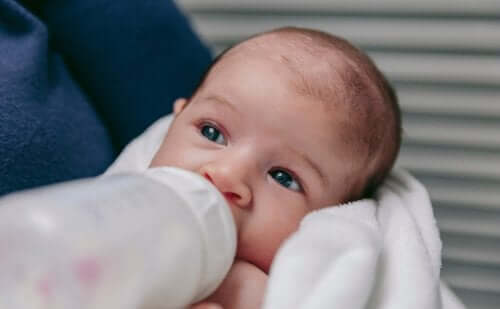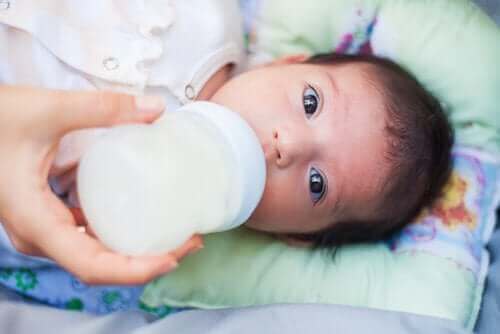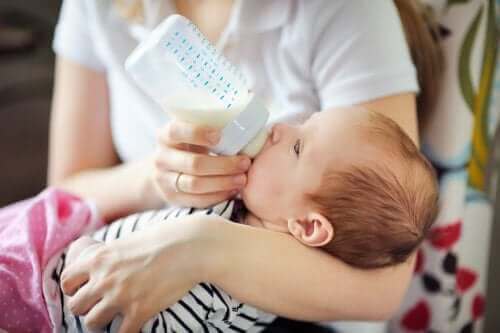The Risks of Using Artificial Baby Formula
There are many women who, out of need or by choice, choose to give their babies formula. However, it's important to be aware of the risks of using artificial baby formula, both for mother and baby.

If you’re pregnant or have already given birth, you need to think about how to feed your baby. The options are artificial feeding, exclusive breastfeeding, or a combination of both (breast and bottle) feeding. But, to make an informed decision about feeding your baby, you need to know the benefits of breastfeeding and the risks of using artificial baby formula.
Each mother should be free to make this decision, but she should also have all the information she needs in order to decide. We’re not going to talk about the benefits of artificial breastfeeding, since, as such, it has none, beyond those involving comfort and convenience. However, you have to take into account that it needs preparation and cleaning, while the breast does not.
In any case, the indication to administer formula has to be made by the pediatrician, after evaluating the possibility of breastfeeding or not. There are some cases in which the mother may need to give formula to her child, such as:
- Separation of mother and newborn.
- Ineffective suction or inability to latch on to the breast.
- The baby has lost more weight than usual.
- Personal reasons.

When a baby’s unable to breastfeed, experts always recommend pumped breast milk as the best alternative. This is because babies who don’t receive breast milk miss out on all its benefits, which exposes them to a greater risk of morbidity and mortality… Not to mention the greater economic and social cost.
In addition, the use of artificial baby formula as baby food carries a number of risks, both for the infant and the mother.
Risks for the infant
- Worse gastrointestinal adaptation, slower intestinal transit, delayed maturation of intestinal epithelium. Increased susceptibility to food intolerance, infant colic, constipation, gastroesophageal reflux, and groin hernia.
- Increased frequency of gastrointestinal, respiratory, urinary, otitis, sepsis, and meningitis infections
- In premature infants, higher incidence of necrotizing enterocolitis and late neonatal sepsis
- Higher incidence of sudden infant death
- Increased risk of malocclusion and open bite from the use of bottles and pacifiers
- Worse neurological development
- Obesity, autoimmune diseases, diabetes mellitus, juvenile rheumatoid arthritis, and autoimmune thyroid disease
- Increased risk of allergic diseases
- Reduced emotional bonding and increased risk of child abuse.

Risks of using artificial baby formula for the non-breastfeeding mother
- Increased risk of postpartum hemorrhage, worse uterine involution (return of the uterus to its normal state).
- Increased risk of anemia, since breastfeeding delays the return of your period much longer.
- Worse recovery of pre-pregnancy weight. Breastfeeding is an energy drain on the mother that helps her lose the weight gained during pregnancy.
- Increased incidence of type II diabetes, breast cancer, and ovarian epithelial cancer
Therefore, it’s important that you know all this information before making a decision. Of course, you can always talk to a professional to inform, guide and support you. However, of course, the final decision is always yours.

